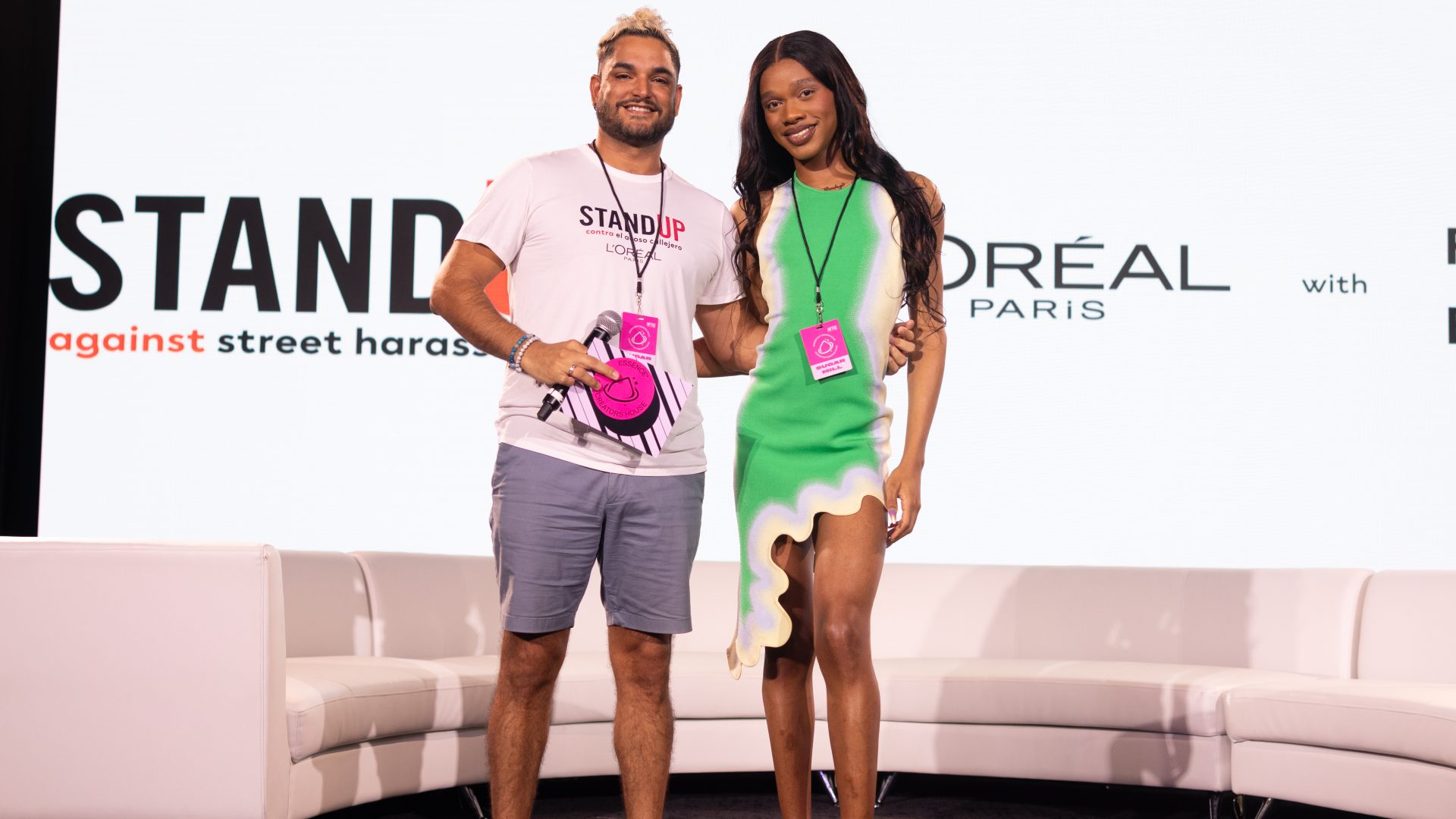
Bugaboos, strangers, hecklers, whatever you call them; unsolicited agitators can cause harm, and L’Oreal Paris, Jae Gurley, and Right To Be are providing ways to stop them. Between the weekend’s socializing, performances, and panel conversations, the Creator’s House received a crash course on standing up to street harassment and how to address the culture of it in our communities.
Be it your Sunday best or Saturday night’s finest, your clothing — or anything you do for that matter — seldom keeps street harassment away if a stranger is resolved to enact it. This truth is something women and femmes know all too well, and can be very traumatic for people just trying to exist in the world in their own bodies.
L’Oreal Paris influencer Jae Gurley and the Right To Be organization came together on the GU Creator Stage to educate our audiences on how to be a proactive bystander against street harassment. They kick the segment off by discussing what street harassment may entail. While the perpetrator may package the exchange as complimentary, it is still unwanted, which is where the issue lies.
Right To Be strives to ensure safe public spaces for all individuals no matter their identity. According to Gurley, 80% of Black women experience street harassment; a staggering number that is sadly unsurprising.
Together with Right To Be, Gurley educated the GU crowd on what they call the “Five D’s,” of bystander intervention, a five-step method that offers solutions to reduce or intervene on street harassment.
The D’s go as follows, in no particular order:
Distract: Interrupt or derail the harassment by causing a distraction from it and engaging with the person experiencing it.
Delegate: Bring in another bystander to help with the de-escalation such as checking in with the person experiencing harassment or distracting so you can do so.
Document: Whether by video to put the pressure on the harasser or by hand-written notes, keeping a report of the incident can be a huge help to a step later.
Delay: Approach the harassee after the fact and offer support for and acknowledgment of what just transpired.
Direct: Face the harasser directly and let them know that what they are doing is not okay.
With these in mind, the educators hope zillennials feel more empowered to take action against harassment of others, and contribute to a safer community that looks out for all.